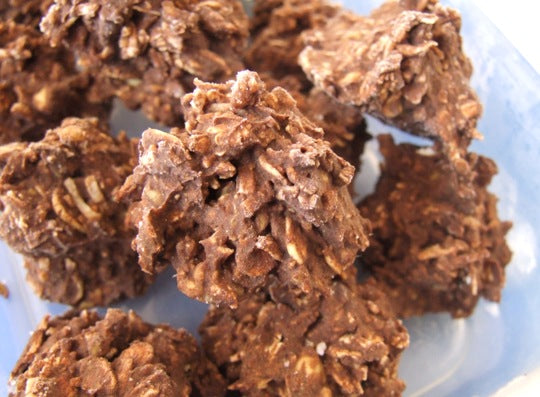In Health Tip #648we talked about how animal sourced foods were the single most dangerous foods a person could consume, being the cause or contributing cause of some 90% of all physical problems being experienced. Specifically in this Health Tip we talked about the FAT contained in animal sourced foods that clog the arteries, and contribute to high blood pressure, heart attacks and strokes.
In Health Tip #649 and Health Tip #650 we discussed how the ACID in animal sourced foods cause a myriad of problems, including acid stomach, heartburn, osteoporosis, and how if the blood becomes even slightly acidic, we die.
In this Health Tip we are going to talk about PROTEIN and how the excessive amounts of protein found in animal source foods harm the body. As our source of information we will share excerpts from a book I wrote in 1995, co-authored with Michael Dye, titled God’s Way to Ultimate Health. Though written some fifteen years ago, you will find the information you are about to read is as up-to-date as tomorrow’s newspaper.
Beginning on page 125 of God’s Way to Ultimate Health, in Chapter 15, titled Protein and Propaganda we learn the following:
Protein is by far the most widely discussed and publicized nutritional requirement of our body. With all this information available about protein, you might assume that people are pretty well informed on the subject. WRONG!
The average American consumes over 100 grams of protein a day, which is three to five times as much as experts now say is necessary. We all know that protein is an essential nutrient, but what most of us have not been told is that excessive amounts of protein can be hazardous to our health.
The dangers of a high-protein diet are not commonly known by the general public because we have been fed more misinformation and propaganda about protein than any other category of nutrition. A combination of badly outdated animal experiments and self-serving indoctrination disguised as nutritional education has left most people badly misinformed about our body’s protein needs.
Several generations of school children and doctors were taught incorrectly that we need meat, dairy and eggs for protein. The meat, dairy and egg industries funded this ‘nutritional education’ and it became official U. S. government policy. Much of the evidence used to support the claim that animal products are ideal for meeting human protein needs was based on a now discredited experiment on rats conducted in 1914.
The medical and nutritional establishments have been slow to accept evidence contrary to the status-quo of self-serving ‘nutritional education’ promoted by major commercial influences such as the meat and dairy industry. But facing the facts has forced doctors and nutritionists to steer more and more people away from animal products (because of cholesterol, saturated fat, mucous, excess protein, zero fiber, etc.) and to more fresh fruits and vegetables.
It has been interesting to observe over the years how expert opinions and official policies have changed, sometimes reluctantly, in the area of health and nutrition. The subject of protein requirements provides a classic example of how experts and official policies have been proven wrong and forced to change.
Nutritionists have drastically altered their thinking about human protein needs since that infamous rat study more than 80 years ago. But this updated knowledge has been very slow to reach the public. Most adults will remember being told repeatedly (and incorrectly) in school about how important it is to get lots of protein.
This new knowledge has left a wide gap between what nutritional experts now say about protein versus what was being taught just a couple decades ago in school. In an effort to fill this wide gap of information as thoroughly and concisely as possible, here is a six-point summary of what we should know about protein.
EDITOR: We only have room in this health tip to share this first point:
1) Modern research has shown that we should be more concerned about consuming too much protein rather than not getting enough.Protein is an extremely important nutrient, but when we get too much protein, or protein that we cannot digest, it causes problems. In Your Health, Your Choice, Dr. Ted Morter warns,
“In our society, one of the principle sources of physiological toxins is too much protein.”It may come as quite a shock to people trying to consume as much protein as possible to read in major medical journals and scientific reports that excess protein has been found to promote the growth of cancer cells and can cause liver and kidney disorders, digestive problems, gout, arthritis, calcium deficiencies (including osteoporosis) and other harmful mineral imbalances. Numerous studies have found that animals and humans subjected to high-protein diets have a consistently higher rate of cancer development. As for humans, T. Colin Campbell, a Professor of Nutritional Sciences at Cornell University and the senior science adviser to the American Institute for Cancer Research, says there is a “strong correlation between dietary protein intake and cancer of the breast, prostate, pancreas and colon.” In Your Health, Your Choice, Dr. Morter writes, “The paradox of protein is that it is not only essential but also potentially health-destroying. Adequate amounts are vital to keeping your cells hale and hearty and on the job; but unrelenting consumption of excess dietary protein congests your cells and forces the pH of your life-sustaining fluids down to cell-stifling, disease-producing levels. Cells overburdened with protein become toxic.” Writing in the Sept. 3, 1982 issue of the New England Journal of Medicine, researchers Dr. Barry Branner and Timothy Meyer state that: “undigested protein must be eliminated by the kidneys. This unnecessary work stresses out the kidneys so much that gradually lesions are developed and tissues begin to harden.” In the colon, this excess protein waste putrefies into toxic substances, some of which are absorbed into the bloodstream. Dr. Willard Visek, Professor of Clinical Sciences at the University of Illinois Medical School, warns, “A high protein diet also breaks down the pancreas and lowers resistance to cancer as well as contributes to the development of diabetes.” Anyone successfully indoctrinated by the meat and dairy industry’s nutritional education would be puzzled by the numerous studies finding osteoporosis, a calcium deficiency that makes the bones porous and brittle, is prominent among people with high consumption of both protein and calcium. For example, the March 1983 Journal of Clinical Nutrition found that by age 65, the measurable bone loss of meat-eaters was five to six times worse than of vegetarians. The August 22, 1984 issue of the Medical Tribune also found that vegetarians have “significantly stronger bones.” African Bantu women average only 350-mg. of calcium per day (far below the National Dairy Council recommendation of 1,200 mg.), but seldom break a bone, and osteoporosis is practically non-existent, because they have a low-protein diet. At the other extreme, Eskimos have the highest calcium intake in the world (more than 2,000 mg. a day), but they suffer from one of the highest rates of osteoporosis because their diet is also the highest in protein. The explanation for these findings is that meat consumption leaves an acidic residue, and a diet of acid-forming foods requires the body to balance its pH by withdrawing calcium (an alkaline mineral) from the bones and teeth. So even if we consume sufficient calcium, a high-protein, meat-based diet will cause calcium to be leached from our bones. Dr. John McDougall reports on one long-term study finding that even with calcium intakes as high as 1,400 mgs. a day, if the subjects consumed 75 grams of protein daily, there was more calcium lost in their urine than absorbed into their body. These results show that to avoid a calcium deficiency, it may be more important to reduce protein intake than to increase calcium consumption. In his 1976 book, How to Get Well, Dr. Paavo Airola, PhD., N.D., notes:
we “have been brought to believe that a high protein diet is a must if you wish to attain a high level of health and prevent disease. Health writers and ‘experts’ who advocated high protein diets were misled by slanted research, which was financed by dairy and meat industries, or by insufficient and outdated information. Most recent research, worldwide, both scientific and empirical, shows more and more convincingly that our past beliefs in regard to high requirements of protein are out-dated and incorrect, and that the actual daily need for protein is far below that which has long been considered necessary. Researchers, working independently in many parts of the world, arrived at the conclusion that our actual daily need of protein is only 25 to 35 grams (raw protein being utilized twice as well as cooked) . . . But what is even more important, the worldwide research brings almost daily confirmation of the scientific premise . . . that proteins, essential and important as they are, can be extremely harmful when consumed in excess of your actual need.”Dr. Airola continues: “The metabolism of proteins consumed in excess of the actual need leaves toxic residues of metabolic waste in tissues, causes autotoxemia, over acidity and nutritional deficiencies, accumulation of uric acid and purines in the tissues, intestinal putrefaction, and contributes to the development of many of our most common and serious diseases, such as arthritis, kidney damage, pyorrhea, schizophrenia, osteoporosis, arteriosclerosis, heart disease, and cancer. A high protein diet also causes premature aging and lowers life expectancy.” EDITOR’S NOTE:God’s Way to Ultimate Health, the book the above quotes were taken from, was first published in 1995 by Hallelujah Acres. The book remains a best seller and there are now over a half million copies of this book in print. The book is divided into four parts:
- A Biblical Foundation for Health – Chapters 1-13 (Pages 24-117)
- An “Amen” From Modern Science – Chapters 14-23 (Pages 118-183)
- An “Amen” From People Who Have Tried the Hallelujah Diet – Chapters 24-26 (Pages 188-235)
- Recipes and Tips on How to Prepare Natural Foods – Chapters 27-30 (Pages 244-274)






